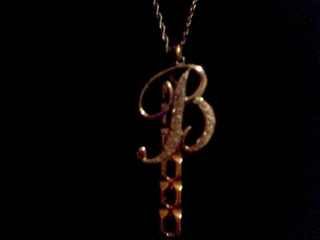Thursday, February 15, 2007
Alright since i had nothing much to do i decided to check up on the song 'Scarborough Fair', as menreet suggested i checked it out lol....
Ok so i wikipedia-ed it and found some interesting facts and history of the song.
Background knowledgeDuring late medieval times the seaside resort of Scarborough was an important venue for tradesmen from all over England. It was host to a huge forty-five day trading event, starting August 15, which was exceptionally long for a fair in those times. People from all over England, and even some from the continent, came to Scarborough to engage in business.
The traditional 'Scarborough Fair' no longer exists but a number of low key celebrations take place every September to mark the original event.
Scarborough Fayre in Scarborough North Yorkshire originated from a charter granted by King Henry III of England on 22 January 1253. The charter, which gave Scarborough many privileges, stated "The Burgesses and their heirs forever may have a yearly fayre in the Borough, to continue from the Feast of the Assumption of the Blessed Virgin Mary until the Feast of St Michael next following"
According to old records, the 45-day Scarborough Fayre, was held annually from 15 August to 29 September and soon became internationally famous as a trading fayre. Merchants came to it from all areas of England, Europe, Norway, Denmark, the Baltic and the Ottoman Empire. Naturally, such a large occasion attracted a lot more than just tradesmen, they needed to be entertained and fed, therefore large crowds of buyers, sellers and pleasure seekers attended the fayre. Prices were determined by ‘Supply and demand’, with goods often being exchanged through the barter system. Records show that from 1383 Scarborough’s prosperity slumped.
In the early 17th century competition from other town's markets and Fayres and increasing taxation saw further collapse of the Fayre until it eventually became financially untenable. The market was revived again in the 18th century, but due to intense competition Scarborough Fayre finally ended in 1788.
Although the Charter for an official Fayre in Scarborough is no more, the local people try to organise events to take place in summer, composed of a week of events revolving around the towns medieval history with jugglers, jesters and musicians.
Scarborough Fair in July 2006 witnessed Medieval Jousting Competitions, hosted by English Heritage in addition to the usual attractions.
The BalladThe song tells the tale of a young man, who tells the listener to ask his former lover to perform for him a series of impossible tasks, such as making him a shirt without a seam and then washing it in a dry well, adding that if she completes these tasks he will take her back. Often the song is sung as a duet, with the woman then giving her lover a series of equally impossible tasks, promising to give him his seamless shirt once he has finished.
As the versions of the ballad known under the title "Scarborough Fair" are usually limited to the exchange of these impossible tasks, many suggestions concerning the plot have been proposed, including the hypothesis that it is a song about the Plague. In fact, "Scarborough Fair" appears to derive from an older (and now obscure) Scottish ballad, The Elfin Knight (Child Ballad #2), which has been traced to 1670 and may well be earlier. In this ballad, an elf threatens to abduct a young woman to be his lover unless she can perform an impossible task ("For thou must shape a sark to me / Without any cut or heme, quoth he"); she responds with a list of tasks which he must first perform ("I have an aiker of good ley-land / Which lyeth low by yon sea-strand"), thus evading rape.
As the song spread, it was adapted, modified, and rewritten to the point that dozens of versions existed by the end of the 18th century, although only a few are typically sung nowadays. The references to "Scarborough Fair" and the refrain "parsley, sage, rosemary and thyme" date to nineteenth century versions, and the refrain may have been borrowed from the ballad Riddles Wisely Expounded, (Child Ballad #1), which has a similar plot.
Alright,
the LYRICSFollowing is one (relatively recent) version of the song, arranged as a duet:
BOTHAre you going to Scarborough Fair?
Parsley, sage, rosemary and thyme,
Remember me to one who lives there,
For she/he once was a true love of mine.
MANTell her to make me a cambric shirt,
Parsley, sage, rosemary and thyme,
Without any seam nor needlework,
And then she'll be a true love of mine.
Tell her to wash it in yonder dry well,
Parsley, sage, rosemary and thyme,
Which never sprung water nor rain ever fell,
And then she'll be a true love of mine.
Tell her to dry it on yonder thorn,
Parsley, sage, rosemary and thyme,
Which never bore blossom since Adam was born,
And then she'll be a true love of mine.
Ask her to do me this courtesy,
Parsley, sage, rosemary and thyme,
And ask for a like favour from me,
And then she'll be a true love of mine.
BOTHHave you been to Scarborough Fair?
Parsley, sage, rosemary and thyme,
Remember me from one who lives there,
For she/he once was a true love of mine.
WOMANAsk him to find me an acre of land,
Parsley, sage, rosemary and thyme,
Between the salt water and the sea-strand,
For then he'll be a true love of mine.
Ask him to plough it with a lamb's horn,
Parsley, sage, rosemary and thyme,
And sow it all over with one peppercorn,
For then he'll be a true love of mine.
Ask him to reap it with a sickle of leather,
Parsley, sage, rosemary and thyme,
And gather it up with a rope made of heather,
For then he'll be a true love of mine.
When he has done and finished his work,
Parsley, sage, rosemary and thyme,
Ask him to come for his cambric shirt,
For then he'll be a true love of mine.
BOTHIf you say that you can't, then I shall reply,
Parsley, sage, rosemary and thyme,
Oh, Let me know that at least you will try,
Or you'll never be a true love of mine.
Love imposes impossible tasks,
Parsley, sage, rosemary and thyme,
But none more than any heart would ask,
I must know you're a true love of mine.
Symbolism of the refrainMuch thought has gone into attempts to explain the refrain "parsley, sage, rosemary and thyme", although, as this is found only in relatively recent versions, there may not be much to explain. The oldest versions of "The Elfin Knight" contain the refrain "my plaid away, my plaid away, the wind shall not blow my plaid away" (or variations thereof), which may reflect the original emphasis on the lady's chastity. Slightly younger versions often contain one of a group of related refrains:
Sober and grave grows merry in time
Every rose grows merry with time
There's never a rose grows fairer with time
These are usually paired with "Once she was a true love of mine" or some variant. "Parsley, sage, rosemary and thyme" may simply be the result of an attempt to fill in forgotten portions of one of the above.
In "Scarborough Fair" the herbs may be a veiled message for the girl where the man is explaining why she should come back to him (if she overcomes the five impossible tasks):
parsley: I'm yours.
sage: I'm dependable.
rosemary: Remember me.
thyme: I want to have children with you.
On the other hand, elaborate theories have been proposed concerning the symbolism of these herbs. Parsley, used to this day as a digestive aid, was said to take away the bitterness, and medieval doctors took this in a spiritual sense as well. Sage has been known to symbolize strength for thousands of years. Rosemary represents faithfulness, love and remembrance, and the custom of a bride wearing twigs of rosemary in her hair is still practiced in England and several other European countries today. Thyme symbolizes courage, and during the medieval era, knights would often wear images of thyme on their shields when they went to combat. The speaker in the song, by mentioning these four herbs, wishes his true love mildness to soothe the bitterness which is between them, strength to stand firm in the time of their being apart from each other, faithfulness to stay with him during this period of loneliness and paradoxically courage to fulfill her impossible tasks and to come back to him by the time she can.
Another theory considers the magical significance of the herbs. Parsley, sage, rosemary and thyme have all been closely associated with death and used as charms against the evil eye. In The Elfin Knight (of which Scarborough Fair is a version), an elf sets impossible tasks to a maid, and her replies determine whether she will fall into his clutches or not. Francis Child suggested that the elf was an interloper from another ballad, Lady Isabel and the Elf-Knight, and that he should rightly be a mortal man, but as Ann Gilchrist points out, "why the use of the herb refrain except as an indication of something more than mortal combat?". Sir Walter Scott in his notes on Minstrelsy of the Scottish Border recalled hearing a ballad of "a fiend... paying his addresses to a maid but being disconcerted by the holy herbs she wore in her bosom", and Lucy Broadwood goes so far as to suggest that the refrain might be the survival of an incantation against such a suitor (which would fit well with the plot of "The Elfin Knight").
Ok so we now we have a good rough idea on the song, it's history and we know the lyrics.
Honestly speaking, it seems to me it's about a song of a man and a woman who are having a conversation about whether they would want to go to the scarborough fair, but much is left to discuss on the subtleties in it. I assume that there's an underlying meaning to what they say and how they say it. From my perpective it speaks about courtship. It depicts the expectations of a man and a woman of a relationship. What i expect from you in a relationship is that you give me this and you give me that. It's about expecting something from the other person which i agree with as long as the expectations are realistic. I quote "When he has done and finished his work, Ask him to come for his cambric shirt, For then he'll be a true love of min" , that's not true love to me...unless you see that stanza in a different light where it can also be portrayed as the woman's response to the man who's asking her to make a cambric shirt, which was nearly impossible in those days, thus implying that men always ask too much of a woman and that it's unfair for them to do so. Women too have their say in things. so yea, that's basically what i glean from reading what i found on wikipedia. Sounds like this song could be used as a discussion on discrimination against sexes. what is so often and commonly discussed is of course feminism. "Women can do everything" , and i support that argument, society doesnt need to be male-dominated. everyone can do his or her part for the betterment of society.
Overall i dont think the lyrics are creepy but it may be the way it sounds...
Menreet do you have an audio copy of the song? cos i dont have any with me and would like to hear the what it sounds like :)



 recorded on vinyl @
recorded on vinyl @